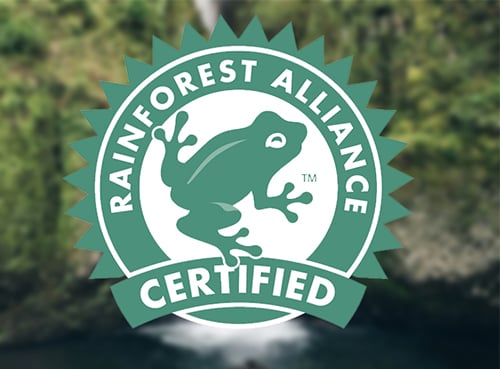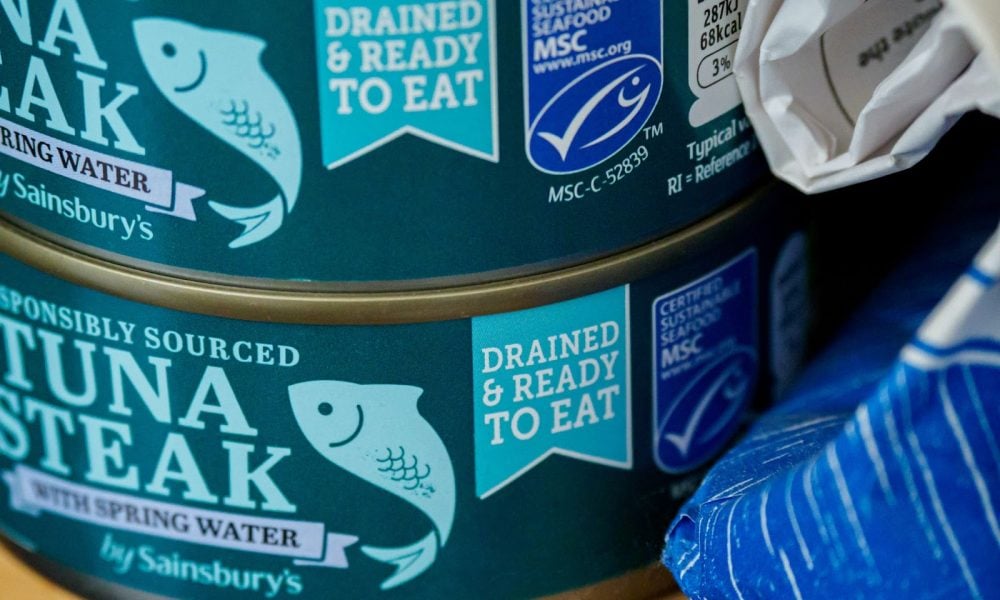When releasing a food product, there’s much to consider when developing the packaging and labelling. Packaging should ideally provide all the information shoppers need to make an informed decision about their purchases while also providing businesses the opportunity to provide proof of the food’s quality.
To ensure relevant information is available on the packaging, various legislation has been developed that detail mandatory requirements for packaging, and it can be daunting to wrap your head around what’s required. Today, we’re compiling all our information to provide a comprehensive guide to all the legislation you need to be aware of, tips about labelling and packaging, and tips on making your product stand out through quality assurance logos.
What Information Has to Be on a Food Label?
One of the most important labelling requirements is declaring the presence of the 14 major allergens, also known as the ‘14 main allergens’, if present in your food product.
In the UK, the 14 major food allergens are identified as causing a substantial number of overall food allergy cases. As a result, businesses are legally required to highlight the presence of allergens on labels and packaging.
The 14 Major Allergens are:
- Cereals containing Gluten
- Molluscs
- Crustaceans
- Lupin
- Peanuts
- Milk
- Sesame
- Celery
- Soy
- Mustard
- Eggs
- Sulphites
- Fish
- Tree Nuts
The most common method of allergen labelling is to highlight them in bold, though the Food Standards Agency also mentions using different colours, fonts, or italics, for example.
While the 14 major allergens are required in the European Union, countries like the U.S. have their own variations. If outside of the EU, be sure to check how your country’s requirements may differ.
An amendment to prior allergen legislation was introduced in 2019, and came into force in 2021, known as Natasha’s Law. This required ingredients and allergens to be labelled in food that’s prepacked for direct sale. This is known as PPDS food, covering any food packaged in the same place it is sold and in packaging before being available for purchase. Allergen labelling requirements didn’t apply to these foods in the original 2014 legislation, though some PPDS foods, such as those sold over the phone or online, have slightly different requirements; for a deeper look at the specific requirements of PPDS labelling, check out our Natasha’s Law article.
What are E numbers?

Declaring food additives is another important aspect of labelling. In the EU, approved additives are given an alphanumeric ‘European number’, more commonly known as an E number, which is grouped by additive type, such as an acidity regulator or antioxidant.
Many businesses include E Numbers in their food labelling beside the corresponding additive. The legislation covering E number requirements is Regulation (EC) No 1333/2008, which is enforced in the UK through The Food Additives, Flavourings, Enzymes, and Extraction Solvents Regulations 2013.
The Importance of Quality Assurance Logos
While following labelling legislation helps businesses follow governmental standards, we can also enhance the look of food products for consumers through quality assurance logos.
Going by many different names, such as certification logos or certification marks, shows that your business aligns with the ethical standards of a highly regarded non-governmental company, typically a non-profit organisation emphasising good practices for the wider community and the environment. Gaining a certification logo normally involves an approval process with the company producing it to ensure your product meets their standards.
They indicate to shoppers that your product aligns with the practices they value in a company, such as prioritising a low carbon footprint in their operations or high standards of animal welfare. Commonly used certification logos include:
Red Tractor
Licenced by the Assured Food Standards Company, their website states that the red tractor logo indicates that the food’s ingredients are sourced in the UK, with a priority on traceability and animal welfare.
There are four variations of the logo available. ‘Certified Standards’ ensures that 95% of the product contains a red tractor-certified ingredient. When less than 95% of the ingredients are certified, the ‘Named Ingredient’ logo to clarify which ingredient is certified. ‘Enhanced Welfare’ highlights good living conditions for chickens, and ‘Free Range’ indicates that the birds used in poultry products had access to an outdoor range for most of their life.
Rainforest Alliance Certified

Products with this logo are viewed as having high standards of social, environmental, and economic sustainability. For example, if a business has farmland in the Amazon rainforest, it should ensure it does not harm the local environment and aims to provide economic opportunity for the local communities. This includes ensuring cropland doesn’t lead to deforestation and that workers aren’t exploited through poor conditions, low wages, or child labour.
Fairtrade
When new laws or major changes to current legislation are introduced, they will typically be debated and approved by each House of Parliament before receiving royal assent, where the King formally agrees to enact the proposed bill into law. However, in the case of Owen’s Law, this requires just a simple change to existing regulations, and this can be done through delegated powers and not require a full vote in the chamber.
As mentioned earlier, the FSA plans to review the proposals in Owen’s Law and will make their own recommendations as to how current legislation needs to be changed; the problem is that the FSA is not currently giving Owen’s Law the priority it deserves. The main piece of legislation covering allergen labelling in the UK is The Food Information Regulations 2014.
Natasha’s Law, a similar piece of legislation, was enacted into law as an amendment to the 2014 regulations known as The Food Information Amendment Regulations 2021, and Owen’s Law will likely be a further amendment to the original legislation.
Overall, the debate appeared to be a positive step forward in introducing the changes as part of official legislation and highlighted significant issues with the current labelling legislation..
The team at LiberEat supports the Owen’s Law campaign as a close alignment to our mission to make food safer for everyone and we hope to see positive changes to allergen legislation.
UPDATE: Following a Board Meeting on the 13th of December, the FSA announced that it would back the Owen’s Law Campaign proposal of making allergy information mandatory on restaurant menus. This is a significant step towards Owen’s Law being incorporated into existing legislation or being made its own Law, and we’ll keep you updated with its progress as news develops.

The Fairtrade logo similarly prioritises high social, environmental, and economic standards. Workers should be paid equal to or higher than minimum wage, while producers are given a minimum price set by Fairtrade that exceeds the production cost for their products. Fairtrade also strives for ecologically and agriculturally sustainable food practices from their associated business, such as minimal use of pesticides, preserving biodiversity, and effective water and waste management.
RSPCA Assured
The RSPCA Assured logo is solely concerned with the welfare of animals. Products with this logo should give animals space above the legal requirements, meaning cages that restrict movement and natural behaviour should never be used. Animals should also be given a stimulating environment, and antibiotics should be used if an animal is ill. Strict practices are listed to ensure animals are killed humanely, and all RSPCA-assured products can be traced back to their farm of origin.
The Importance of Vegan Symbols
It is also common for products to have a vegan symbol to quickly indicate to shoppers if the product aligns with their eating habits. The Vegan Society Trademark allows registered businesses to use their trademark. 90% of vegans look for a vegan logo in products, with a further 85% believing a third-party logo is important.
Alternatively, The Vegetarian Society offers its trademark to approved businesses, claiming that over three-quarters of vegan and vegetarian consumers look for their trademark on product packaging. Similarly, Coeliac UK provides a verification process to obtain a gluten-free symbol to help shoppers make more informed choices about what they buy.
To summarise, it’s important to know the labelling requirements for allergens for PPDS (prepacked for direct sale) food, referring to food that’s packaged in the same place it is sold to consumers. Correctly labelling non-PDDS foods is also required, and including an additive’s corresponding E number on the packaging can help assure shoppers of your product’s safety.
Quality Assurance Logos also indicate the quality of your product and highlight the values your business aligns with, so it’s a good idea to research the different logos available for your products. If you have any questions about food labelling or anything else allergen-related, don’t hesitate to contact us.
LiberEat – Allergen Error Detection Software
Food allergen rules and regulations continue to change and evolve. Food businesses in production, hospitality, catering, and retail must be vigilant when working with ingredients, products, and dishes containing allergens and exercise due diligence when providing ingredient and allergen information to consumers. Successful allergen management is a big part of Food Safety professionals creating a culture of care and excellence within their teams.
LiberEat offers a second line of defence for food businesses by detecting errors, allergens, and other harmful ingredients with our proprietary Allergen Detection Software. Food businesses can apply this technology directly to identify errors in allergen communications, preventing the risk of injury to consumers. Contact us today to learn more about how we can support your existing food safety processes.
LiberEat works closely with food businesses to ensure consumers are safe and healthy when consuming your produce.
To find out how LiberEat Technology supports food businesses to detect allergens and errors, to protect consumers
Sources
- Look out for our Crossed Grain symbol | Coeliac UK
- Packaging and labelling | Food Standards Agency
- Regulation (EC) No 1333/2008 | legislation.gov.uk
- The Food Additives, Flavourings, Enzymes and Extraction Solvents (England) Regulations 2013 | legislation.gov.uk
- The Vegan Trademark | The Vegan Society
- Raise your profile in the plant-based market with the Vegetarian Society Approved trademarks | The Vegetarian Society

